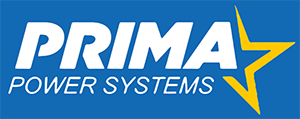What is a Generator?
A generator (or genset) is a machine consisting of two main parts: an engine and an electrical generator. The engine component converts fuel into mechanical energy and the electrical generator component converts mechanical energy into electricity. Other components usually include an engine speed regulator, voltage regulator, alternator, and a cooling and exhaust system. The alternator is required to produce AC (alternating current) power, which is what is supplied to our homes and is needed for most appliances and equipment.
Different Types of Generators
While large generators, such as those used by utility companies to produce power for a community, may use water, wind, or coal, most of the generators we sell generate electricity by burning a fuel, such as gasoline, natural gas, or propane, or a combination of these. We provide prime and standby generators, portable generators, towable generators, and PTO generators.
Power Take Off Generators
A PTO generator is a bit different in that it uses the engine from a vehicle like a tractor, so it doesn’t need its own fuel source. PTO’s are an attractive option for farmers, since most already have a tractor, and without its own engine, PTO’s are more affordable.
Mobile, Portable, and Towable Generators
Many portable generators also have an inverter. The inverter counteracts the reduction in the speed of the engine when a load is connected (e.g., a power tool). The inverter allows a consistent output of electricity. Inverter generators are also quieter and more fuel efficient because the engine runs at fewer revolutions-per-minute (RPMs) compared to other engine generators.
Why Have a Generator
Our generators can serve as the primary source of power or as a backup system when the usual source of power is disrupted.
All electrical devices, from a curling iron to a washing machine, to a HVAC system for a large facility, require a certain number of watts to start up and to stay on. Motor loads have a higher startup power requirement than running requirement and can take up to three times as much power to start than a running load. Wattage needs depend on what you want to provide electricity to.
The smallest generator we sell weighs about 50 pounds, while the largest is more than 40,000 pounds. Power output from standard generators range from 2,500 watts to 2,000,000 watts (2,000kW); however, we can configure multiple generators to work in parallel to produce even more electricity at one time.
Since we offer a variety of different generators, our website categorizes them by type of use. Click on any category below to view the options:
If you’d like to read more about the different types and usages for generators, these articles are also available:
Of course, you can also just give us a call at 1-604-746-0606. We’re here to help you make an informed decision and are happy to discuss your needs and answer your questions.

